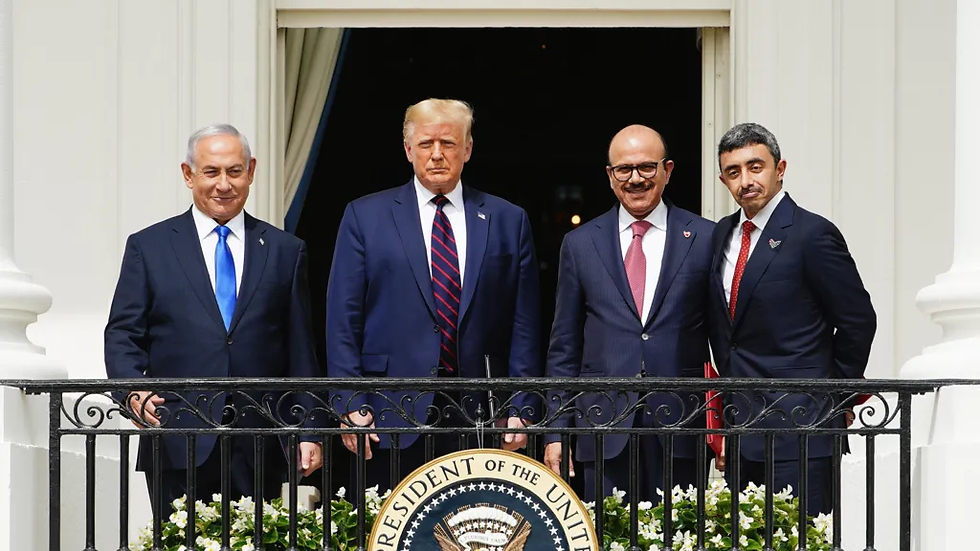China Strikes Back: Swift Trade Curbs Challenge Trump’s Tariff Strategy
- Douglas Kimathi

- Feb 5, 2025
- 3 min read
Douglas Kimathi,Jadetimes News

In a rapid and strategic response to President Donald Trump's recent tariff impositions, China has enacted a series of countermeasures aimed at safeguarding its economic interests and asserting its position in the global trade arena. These actions underscore the escalating tensions between the world's two largest economies and highlight the complexities of international trade relations.
China's Countermeasures: A Multifaceted Approach
In retaliation to the U.S. tariffs, China has implemented a 15% tariff on coal and liquefied natural gas imports from the United States, alongside a 10% tariff on agricultural machinery. These measures, set to take effect on February 10, 2025, target approximately $14 billion worth of U.S. products, including liquefied natural gas, coal, crude oil, and farm equipment. This strategic move aims to exert economic pressure on key sectors of the U.S. economy.
Export Controls on Critical Minerals
Beyond tariffs, China has tightened export controls on five critical minerals essential for defense, clean energy, and various industries. The targeted minerals are crucial for products ranging from smartphones to ammunition. Notable restrictions since 2023 include controls on technology for processing lithium and gallium, a ban on exporting antimony, gallium, and germanium to the U.S., and a prohibition of rare earth magnet technology exports. These actions underscore China's strategic use of its dominance in the supply chain for these minerals to influence global markets.
Antitrust Investigations into U.S. Tech Giants
In a move that has raised eyebrows in the tech industry, China has initiated antitrust investigations into major U.S. technology companies, including Google and Nvidia. While Google's search engine is blocked in China, the company profits from Chinese businesses advertising abroad. Chinese phone manufacturers also predominantly use Google's Android operating system. This development highlights China's increasing scrutiny of foreign tech companies operating within its borders and its efforts to assert regulatory control over the tech sector.
Economic Implications and Global Impact
The trade tensions between the U.S. and China have significant implications for the global economy. Trade between the two nations totaled more than $530 billion in the first 11 months of 2024. The imposition of tariffs and export controls is expected to disrupt supply chains, increase production costs, and potentially lead to higher prices for consumers worldwide. Economists warn that prolonged trade disputes could dampen global economic growth and investor confidence.
Strategic Calculations and Future Outlook
China's response appears calculated to avoid escalating into a full-blown trade war. The targeted nature of the tariffs and export controls suggests a strategic approach aimed at pressuring the U.S. while leaving room for negotiation. Analysts believe the trade conflict is still in its early stages, with potential for further developments as both countries maneuver for advantageous positions in the ongoing economic tussle.
Potential for Negotiation and Resolution
Despite the current tensions, there remains a window for diplomatic engagement. The Chinese government's response, while firm, has not closed the door to negotiations. Both nations have expressed interest in resolving trade disputes through dialogue, and the international community is closely monitoring developments. The outcome of this trade standoff will depend on the willingness of both the U.S. and China to engage in constructive discussions and find mutually beneficial solutions.
A Delicate Balance
The recent escalation in trade tensions between the U.S. and China underscores the delicate balance required in international trade relations. While economic pressures are being applied, both nations appear to be exercising caution to prevent a full-scale trade war. The coming weeks will be crucial in determining whether these tensions will lead to a constructive resolution or further economic confrontation. The global community watches closely, as the decisions made will have far-reaching implications for international trade and economic stability.











































Comments